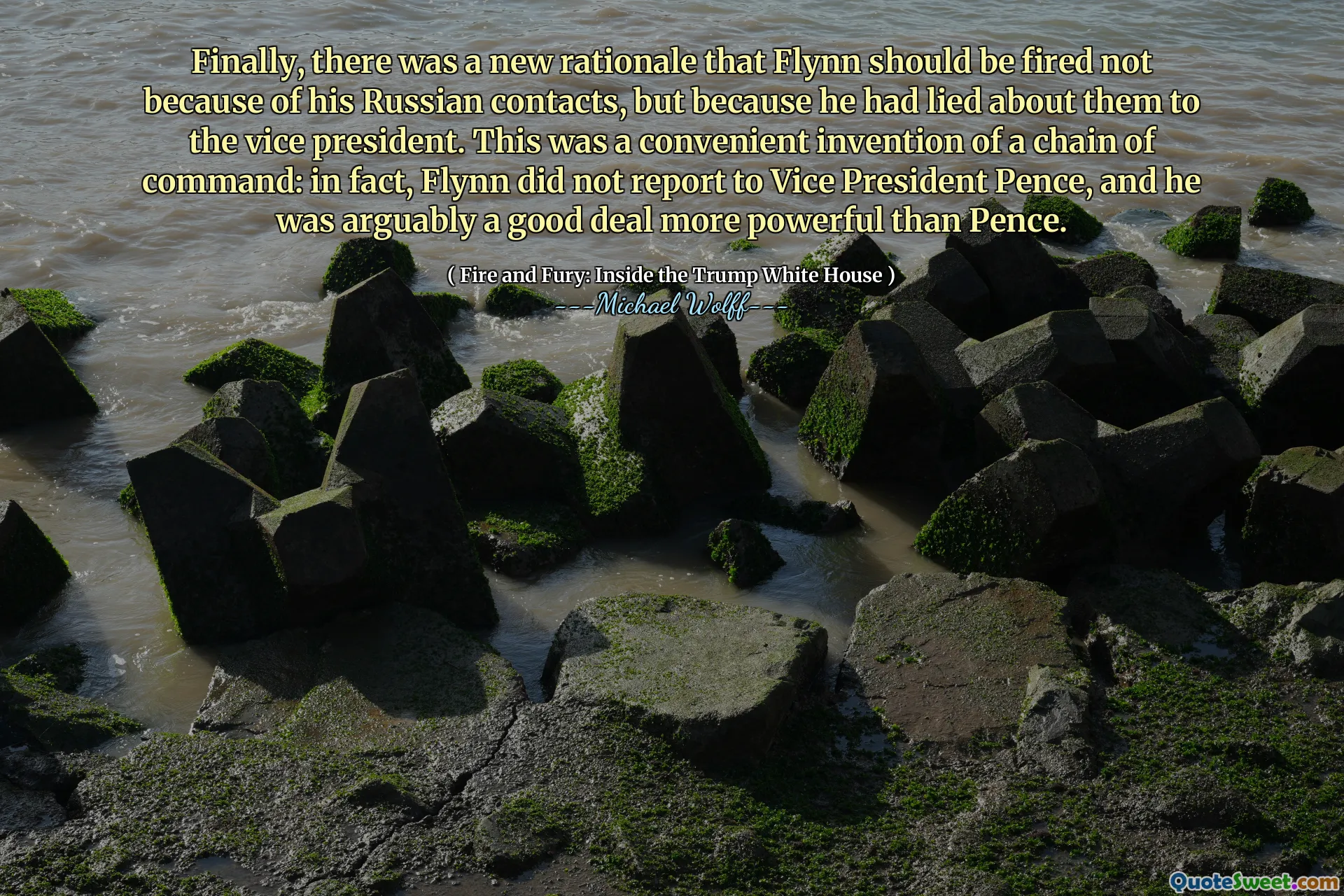
Finally, there was a new rationale that Flynn should be fired not because of his Russian contacts, but because he had lied about them to the vice president. This was a convenient invention of a chain of command: in fact, Flynn did not report to Vice President Pence, and he was arguably a good deal more powerful than Pence.
The justification for Michael Flynn's dismissal shifted from concerns about his interactions with Russia to allegations that he had misled Vice President Pence regarding those contacts. This reasoning presented a constructed hierarchy within the administration, suggesting that Pence had authority over Flynn, despite Flynn’s position likely granting him greater power.
This narrative paints a complicated picture of the dynamics in the Trump White House, where the relationships and power structures were not as clear-cut as might have been perceived. Flynn's dismissal reportedly stemmed from issues of trust and accountability, rather than direct reporting lines, highlighting the complexities within the administration.











